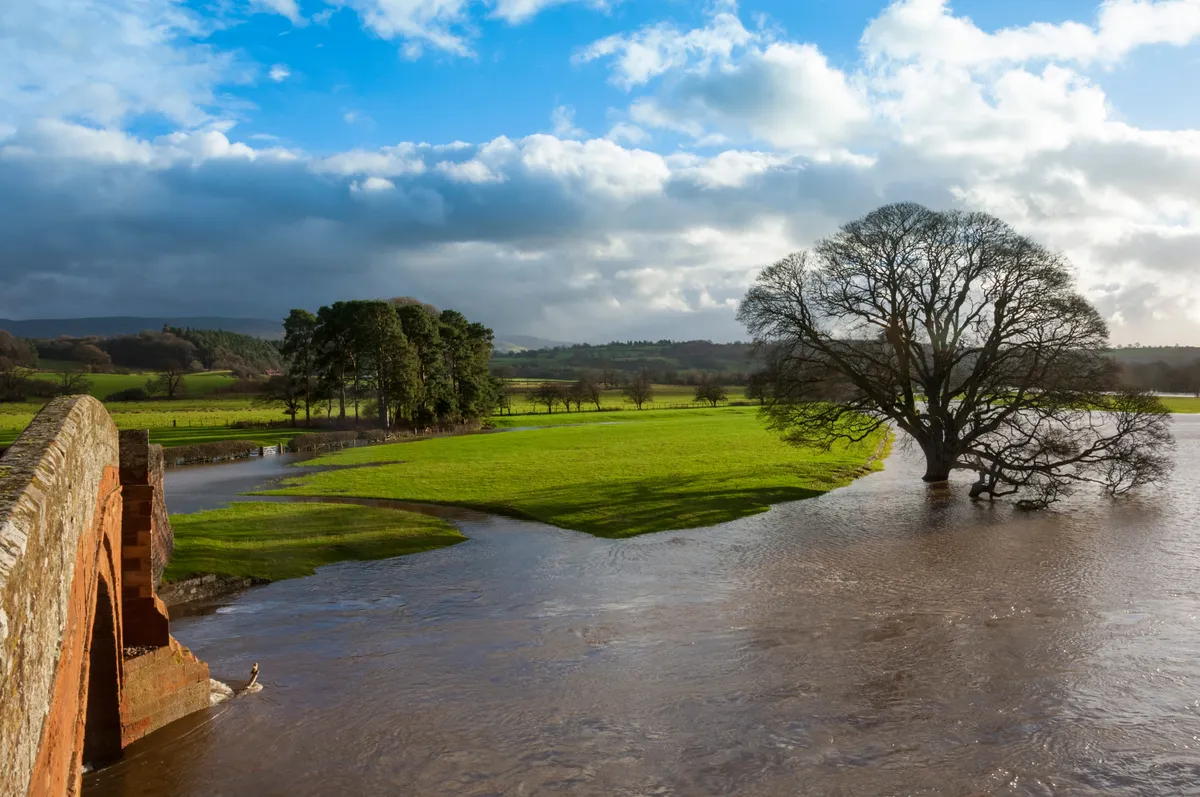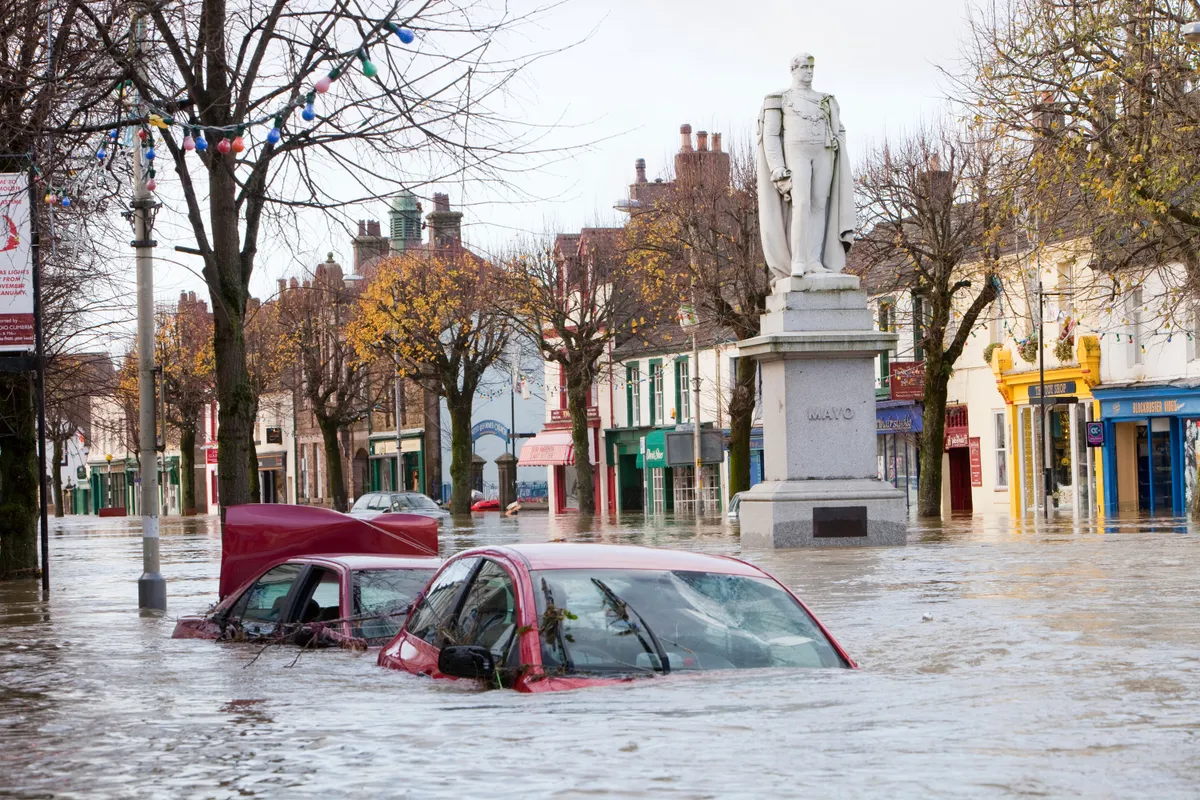The impact of flooding can be distressing and destructive, with heavy rain causing water levels to rise and rivers to burst their banks, while coastal storms can sometimes leave houses completely inundated in a single hour.
Your safety comes first but here are some useful tips from the Met Office to help protect your home as much as possible from flooding.
How to protect yourself and your home from flooding
Prepare for flooding
One in 6 homes in the England and Wales are at risk of flooding – that’s 5.5 million in total – and preparation is key. Know what the risk of flooding is like in your area and agree an action plan with your family. Agree where you will go, who you will stay with if you have to be evacuated and how you will contact them. Think about who you can help, including elderly and vulnerable neighbours.
Keep important documents such as insurance policies in a secure, high location as a matter of course and ensure your policy covers you for flooding. Plan where you may be able to move your cars to, if possible. Roads may very quickly become cut off by water so only do this if it is safe.
Be aware of the dangers of flood water
You may be surprised by the power and force of what seems to be relatively little water. 6 inches of fast-flowing water can knock over an adult and 2 feet of water can lift a car off the ground. Do not drive or cycle through floods if you cannot be certain how deep they are – there maybe hidden debris or open manholes under the water. Keep children and other vulnerable people away from it. Wash your hands thoroughly if you touch it – it maybe contaminated with sewage.

Have a reserve of bottled water and non-perishable food ready
It may be that you are evacuated from your home, but this may take some time. Ensure that you have plenty of dried or tinned food and bottled drinks that will remain safe to consume having been stored at room temperature. Move these items to high ground as soon as possible. Better yet, store them upstairs as a matter of course.
If flood water is about to enter your home, turn off water, electricity and gas supplies
It is important to stop all of these utilities. Flood water and the items within it can cause damage to pipes and cabling, resulting in leaks or instabilities. Leaks in water pipes could add to the problem, while a gas leak will pose an immediate risk to your health.
Electricity and water are not a good mix, so ensure all power is off before the water gets in to the home. Ensure you under no circumstances touch electrical sources such as switches and plugs while you stand in flood water as this could result in electrocution.

Move valuable belongings upstairs
The first priority must always be to make sure people and pets are safe first, but if you have time, move your valuable and necessary belongings upstairs, where they are more likely to remain dry and undamaged. Unplug all electrical equipment such as TVs and computers and move them if possible.
If possible, remove draws from wooden furniture. Wood will expand when wet. Removing the drawers will help prevent built up of pressure in the furniture and help reduce damage to them.
Make sure you have medication, waterproof clothing and torches and plenty of batteries to hand. It may be useful to have a radio, mobile phone and battery-powered phone chargers available too.
- The Great Storm of 1987: what happened and how did it change weather forecasting?
- Britain's worst storms
- How to predict the weather using clouds
Sterilise the bath tub and fill it with water
It's vital that clean drinking water is available. In severe flooding, water supplies can be affected and fluid from the taps can become unsafe. Even if the flood water does not enter your home, flooded water treatment works and other facilities in the water supply chain, making it potentially unsafe.
Where possible, check with the authorities that the supply is still safe and then after sterilising with normal household cleaning products, wash the bath out to ensure potentially harmful chemicals are cleared away. Then fill your bath to ensure a large quantity of water is available if needed. Also fill jugs, bottles and saucepans with clean water.
Block your toilet with sandbags
One of the many unsanitary effects of flooding is the mixing of contaminated water with that of the river and field overflow. Once this water is in the home things become very unpleasant.
One way to help minimise the impact of such effluence is to block your toilet with a sandbag, stopping sewage returning from the drains. Only pump out water once the water levels outside is lower than that inside. It may be months before you are allowed back to your home, so this will not be immediately possible but will help to avoid structural damage to your home when the time comes. Similarly with the mud that is left behind by water, shovel this away evenly from all walls to minimise potential structural damage.
Always wear waterproof clothing when in flood water
When cleaning up after a flood on returning to you home, always wear wellies, waterproof jackets and trousers and even rubber gloves. These items can protect against infection and illness when in flood water, which will contain human and animal waste as well as various chemicals. Normal household cleaning detergents and bleaches will decontaminate your home.
Don’t throw anything away until the insurance company have assessed the damage
Once you have made your claim, you may want to get on with cleaning your home and starting again, but it may be that many of the damaged and dirty items will be repaired, cleaned or replaced by the insurance company. Keep all your receipts and keep a record of all your correspondence with the insurers when dealing with a claim to ensure both parties are clear on what has been agreed.
Weather forecast
Keep up-to-date with the latest forecast via The Met Office.
